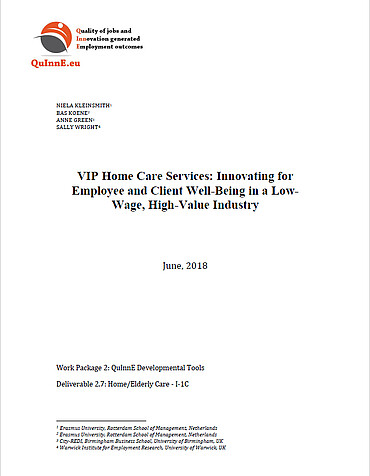Abstract
In 2017, Gwen Jones, founder and owner of VIP Home Care Services, a local UK home care company, began reviewing her company's monthly financial reports, as well as employee recruitment and retention plans for the coming months. Recent legislation and the increasing budget squeeze for social care were constantly challenging Jones's creativity to meet client and employee needs with fewer resources. In 2015, VIP Care had been awarded the local authority's block contract to deliver care in several local towns, which should have placed the company in a strong position in the market. But as budgets and the employee pool shrank, constraints to remain competitive within the home care industry were becoming overwhelming. Jones needed to find a way to maintain high levels of client-focused, quality care while simultaneously supporting, motivating and retaining her employees in an increasingly financially-strapped and competitive industry.
Citation Note
Based on field research; 28 pages.
Follow the 'handle' link to access the Case Study on RePub.
For EUR staff members: the Teaching Note is available on request, you can contact us at rsm.nl/cdc/contact/
For external users: follow the link to purchase the Case Study and the Teaching Note.
Objective
1. Explain the principal actors and their roles in the UK Home Care service industry. 2. Describe the forces at work and the current trends in this industry. 3. Elaborate on the key issues, from the viewpoints of the providers, the employees and the users. 4. Suggest ways of recruiting, motivating and retaining employees in a high-value but low-wage industry. 5. Brainstorm possibilities for changing the fundamentals of this industry to be more client- and employee-focused.
